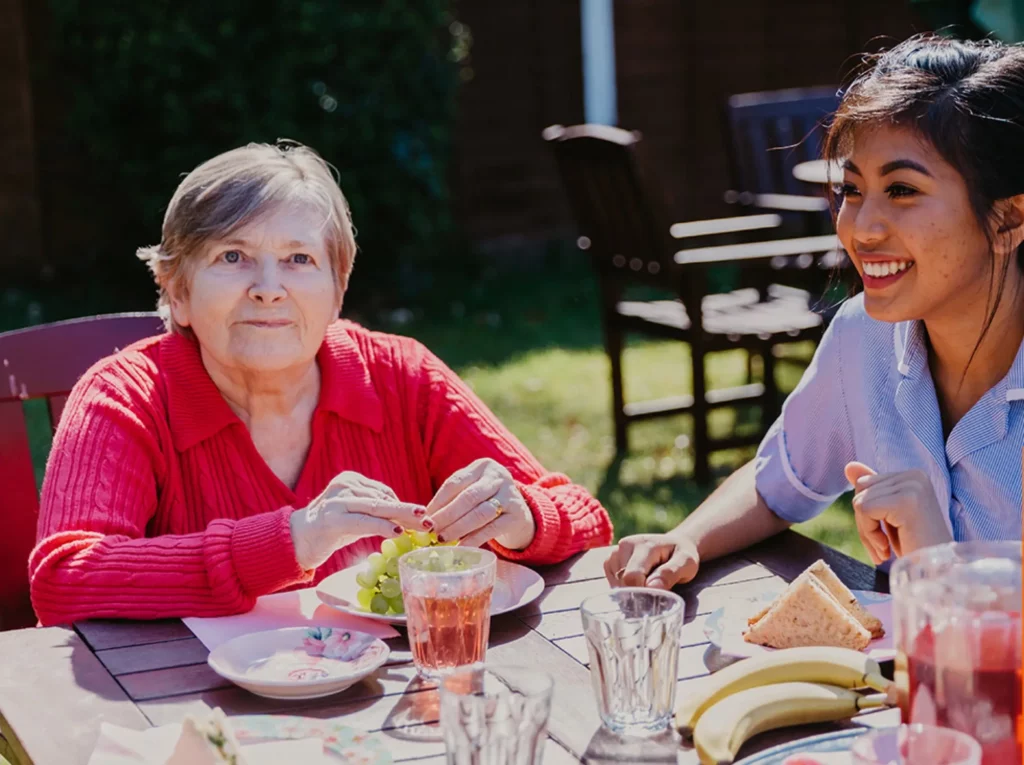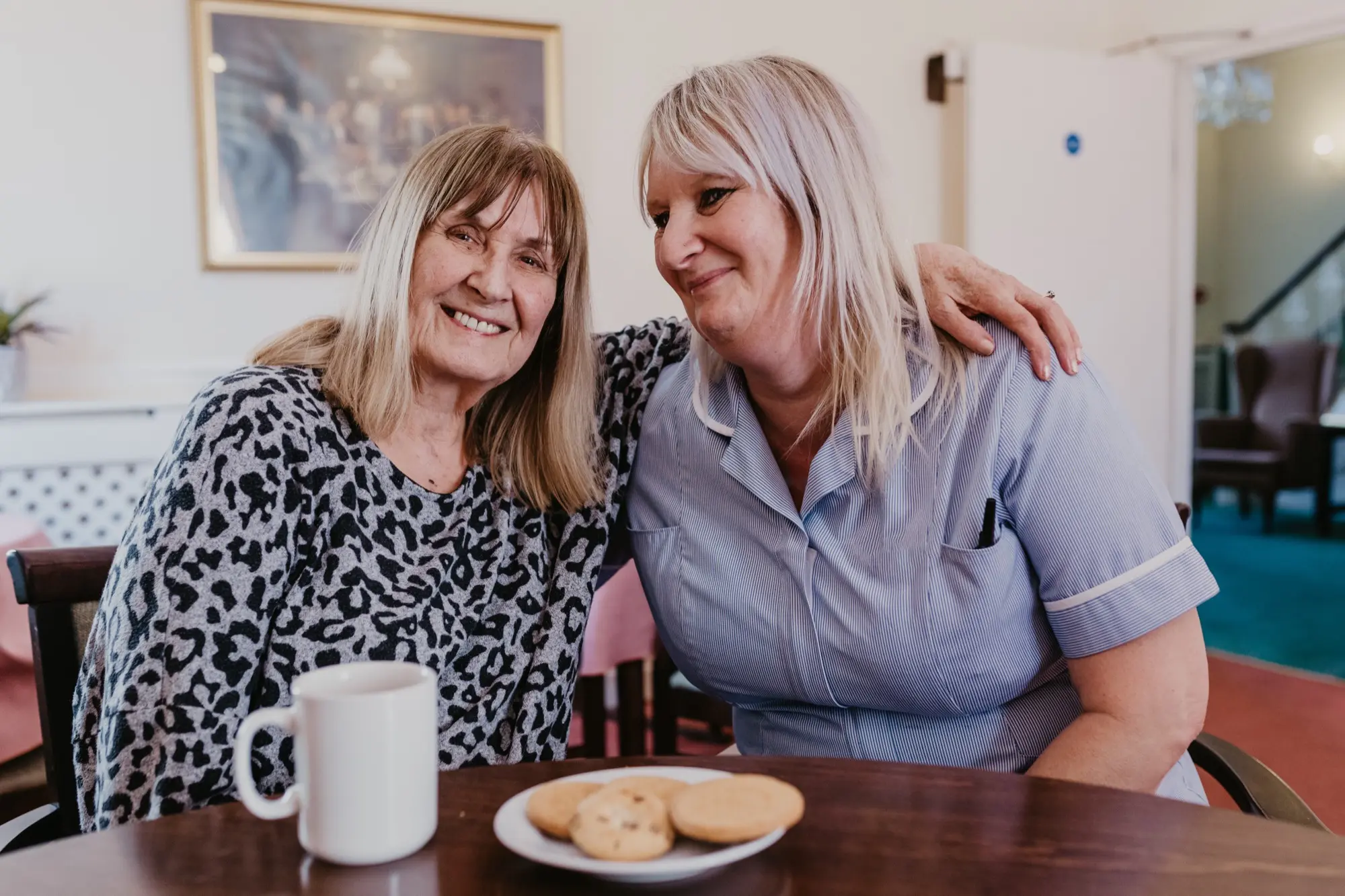Paying for residential and nursing care can seem a complex subject. This page answers some common questions about care home costs and savings thresholds, sets out the different options, the ways to pay, and things to consider.
Please note that this information about paying for care homes is general guidance. It is not specific to anyone’s current circumstances, future goals or objectives.
How can you pay for your care home?
Paying for a care or nursing home
Local authority funding

If your assets total less than £23,250 you’ll qualify for some support, in England, you should get maximum support if your assets are worth less than £14,250.
Also, if it looks like your savings or income will fall below the £23,250 threshold, your local authority should start paying for some, or all of your care.
In either case, you have the right to choose which care home you live in. They must give you at least one affordable choice.
If you prefer a care home that costs more than your personal budget, a family member of friend can pay a top-up fee to make up the difference.
Funding may be available from the NHS or your local authority to meet all or some of the cost. The local authority will conduct two assessments, a care needs assessment and a financial assessment where the local authority look into the value of your property, savings and other assets (your capital) to determine how much of your care they can fund.
If you’re in this situation, it’s a good idea to get in touch with your local authority a few months before it happens, as there will be an assessment process to go through.
Your local authority will pay you a personal budget to spend on your care. In some cases they will arrange your place and pay for the care home directly. If you arrange your care home yourself, you’ll need to keep records on what you’ve spent the money on.
How it works
Self funding (private)
The cost of a care home will vary depending on where you live and what kind of care you need.
If you and/or your family are dealing direct with a care home, you need to know exactly what’s included in the fee. Questions you should ask include:
- 1. Is anything we’ve discussed an ‘extra’? If so, how much will it cost?
- 2. If the care home wants to increase its fees, how much notice does it need to give you?
As a self-funder, you choose your care home. And it’s not all about the cost.
Financial advice disclaimer
The information above summarises how living in a care home is often financed. Agincare care homes are not authorised to provide investment or other financial advice and nothing on this page should be construed as such. We recommend you obtain independent financial advice from an adviser registered with the Financial Services Authority.
Financial planning
The earlier you start planning, the better. Talk to your family and find more information from the NHS about how to pay for care and support.


Frequently asked questions
Our homes have an all-inclusive fee which includes accommodation, laundry, meals, housekeeping and social outings. Examples of additional charges are as follows: shopping that you want to purchase when you are on outings, newspapers delivered to your door every morning and food and drinks when eating out.
Unless your husband, wife, civil partner, a close relative aged 60+ or a dependent child or disabled relative is living in your home, you may have to sell it to pay for a care home.
If you do sell, there are options for what to do with the proceeds:
Bank account – choose a high interest account, but make sure your money isn’t locked away for a long period of time
Investment – to generate income
Care Free Annuity – a payment plan with a regular income. The income is tax-free if it is paid direct to your care home
If you don’t want to sell your home straightaway, there are options:
Renting out your home – use the income to go towards paying for your care home
Equity release – if you’re over 55 this lets you remortgage your home. However, there could be a relatively high interest rate to pay
Deferred payment scheme – if your savings total less than £23,250 your local authority pays for your care home. It then claims the money back from the sale of your home in circumstances such as death.
Your assets are considered to be your savings, investments and the equity from your home.
Your home won’t be included in the calculation if your husband, wife, civil partner, a close relative aged 60+ or a dependent child or disabled relative lives there. Your home also isn’t included in the means test for the first 12 weeks that you’re in a care home.
The means test will also take into account 50 percent of any capital held jointly, such as in a joint savings account.
NHS continuing healthcare is when the NHS source and fund your care entirely. Some people with long term complex health needs qualify for free.
Anyone is able to apply for this, however there is an eligibility criteria that you need to meet to qualify. This is done by a team from the NHS who assess your healthcare needs and determine if you are eligible.
Self-funding is where you pay for your care entirely on your own. As you are self-funding, you get complete control over your care in regards to; how much you want to spend, the location and how you arrange it.
If your local authority are funding your care, you can still get a say in the care homes they are suggesting. However, if you are moving to a home that is closer to relatives or friends which may be a more expensive home, this is still possible. You will be able to do this if someone (either a relative or friend) pays the difference between the fees and costs of care.
At Gorseway Park Retirement Village you can apply for local authority funding for our care and nursing home, but our independent flats are privately bought which means they cannot be funded by them. At St Peter’s Park Retirement Village and Beaufort Park Retirement Village you can get funding for both residential or nursing care. At these locations the apartments are rented out, which means you may be able to seek housing benefits, but not local authority funding.



